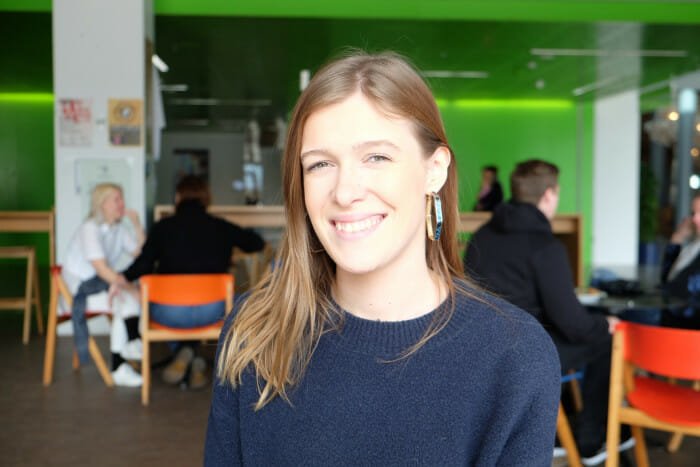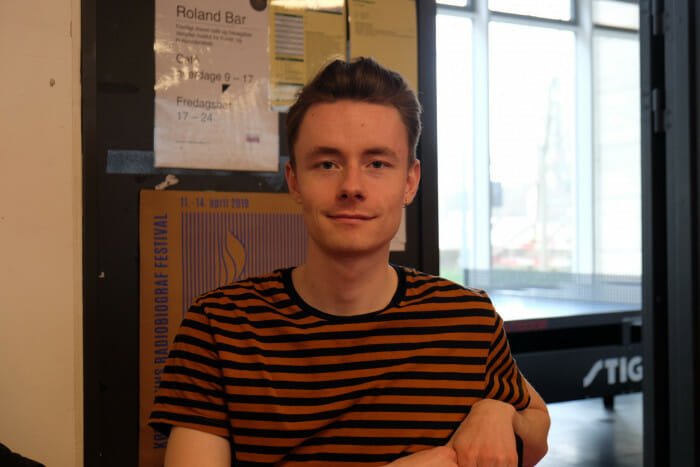Universitetsavisen
Nørregade 10
1165 København K
Tlf: 35 32 28 98 (mon-thurs)
E-mail: uni-avis@adm.ku.dk
—
Campus
Waste sorting — Students at the Faculty of Humanities are surprised they cannot sort their rubbish on campus. Both the citizens and local authorities in this city sort their trash. But this does not apply to all faculties at the University of Copenhagen.
It is all the rage to sort your rubbish. Many of the country’s municipalities have a scheme, including Copenhagen. But Denmark’s largest university is, at some faculties, a slacker when it comes to waste sorting.
Although the University of Copenhagen aims to become a green and sustainable university that recycles 50 per cent of all waste in 2020, not all faculties sort their waste.
I think the options are pretty poor. There are none for glass, metal, and bottle/can deposit returns.
Student Mette Nybo Bonde
On South Campus, the options for waste sorting are hard to spot:
At the fakultetstorvet square, where humanities people congregrate every day to eat lunch, there are several ‘omnivorous’ black bags and smaller trash bins. And bio-waste, plastic, and other types of residual waste are all chucked, pell-mell, into the same bins when lunch is over.
And it adds up to a lot of trash: The University of Copenhagen produces each year more than 4,000 tonnes of waste.
»I don’t really understand why they do not have waste sorting out here,« says Camilla Klang, who is studying English. She is in the coffee shop Mødestedet, drinking a coffee to go and eating a panini from a brown paper bag. When she has finished eating, the paper bag, the paper cup, and any leftovers are all lobbed in the same direction.

Camilla Klang studies English
Two students of comparative literature share Camilla Klang’s bemusement. Niclas Clausen has chucked his cardboard container with soup residues from today’s lunch in one of the waste bins in the student café. The same goes for all the other waste.
»I would sort if I had the opportunity,« he states. His fellow student Simon Pedersen has deliberately reduced his trash by purchasing a reusable plastic container.
»I find the options pretty poor. There are none for glass, metal, and bottle/can deposit returns,« says Mette Nybo Bonde, who is studying musicology.«

Niclas Clausen is a student of comparative literature.
»A fellow student and I once had to throw out a glass frame that had broken, and we didn’t have the foggiest idea what to do with it.
Then this Danish celebrity who is known as ‘Gulddreng’ happens to drop by with his dog and asked if he could help us, because he could see that balancing with all the glass was dangerous,« she says. They politely turned down his offer, but they never actually found a glass container:
“We ended up just leaving it somewhere near campus.«
Søren Höffner, head of operations at South Campus, says that the operations secretariat and the Campus Service unit have jointly launched a pilot project at the CSS campus to clarify how a university environment can start sorting at the source. The task is bigger than just setting up waste stations in various units, he explains:
»It is not a question of setting up one or two bins, but hundreds of them.«
And before they can be set up everywhere, many questions remain to be answered, says the operations manager. Who should collect the garbage? Is it to be classified as an employee resource? How big a volume of waste are we talking about in the different categories? And are there yards and storage places that have to be modified? (The answer is yes!)
»We are working closely with Campus Service to clarify how we can find a solution which will allow staff and students to get rid of their waste in a proper way that is also economically feasible,« says Søren Höffner and adds:
»Investments are needed if the University of Copenhagen is to have a greener profile.«
The pilot project has a sensible budget at the moment, according to Höffner, so the operations team are testing waste volumes etc. It is on this basis, that a more robust solution is to be copied to all three parts of South Campus.
Students and staff can (maybe) look forward to to being able to sort waste in the course of a year, according to the operations manager.
Translated by Mike Young